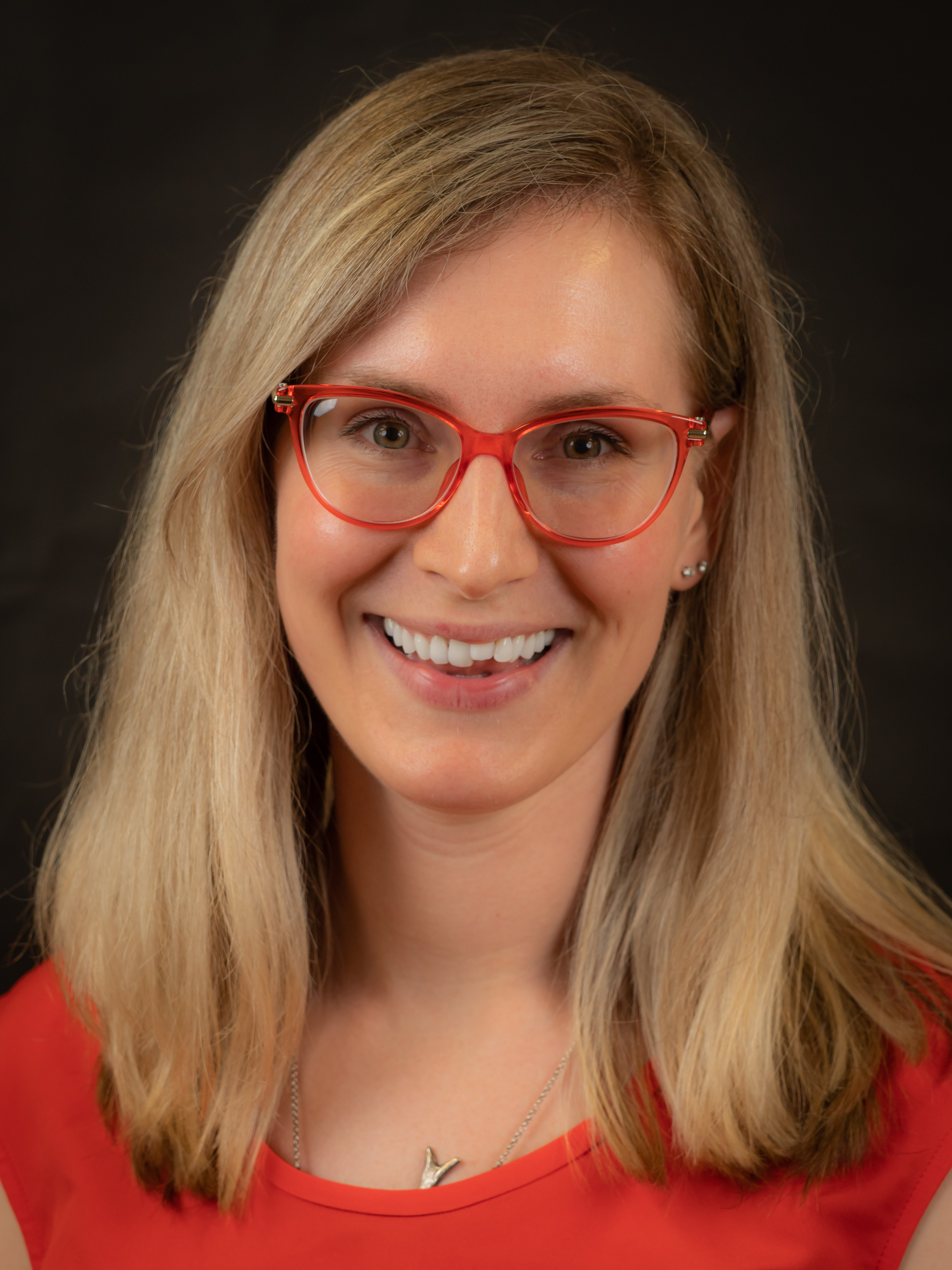Graduate Faculty Focus | Jen Hartman

"My experiences researching grief and loss, working with individual clients and facilitating grief counseling groups through a nonprofit grief center during Covid increased my desire to get involved with grief education."
Jen Hartman
Program
- Thanatology (Certificate)
- Counseling, Clinical Mental Health (M.S.)
Department
- Psychology & Counseling
Jen Hartman is a counselor and clinical supervisor as well as an adjunct professor teaching at Hood College’s thanatology program. She has been working to raise awareness about different kinds of grief and loss, along with alternative methods for coping with grief. We spoke to Jen about her work with Nathaniel Brown, a counselor educator at Johns Hopkins University, on incorporating grief and loss into career counseling.
Could you briefly describe your career and educational background?
I’ve been a counselor for more than seven years now. I was a school counselor in Title I schools for the first three years, and now I counsel medical students and resident physicians at Oklahoma State University’s College of Health Sciences. I’m currently a doctoral candidate analyzing my dissertation data.
What led you to teach at Hood College as an adjunct?
I met Megan Shaine, director of the clinical mental health counseling program at Hood College, through the Association of Adult Development and Aging’s Grief Counseling Competencies Task Force. I’ve always wanted to teach grief counseling, so I definitely made my interest in the thanatology program known! My experiences researching grief and loss, working with individual clients and facilitating grief counseling groups through a nonprofit grief center during Covid increased my desire to get involved with grief education. I’m so grateful for the opportunity to work with the students and faculty at Hood!
What course do you currently teach?
I teach COUN 521, Grief, Mourning and Bereavement. We explore different aspects of grief, grief counseling skills and grief theories, or ways of understanding and conceptualizing experiences. We differentiate typical from complicated or prolonged grief, and we talk about various death and non-death losses. I always say that, if you can lose it, you can grieve it. You can lose plans and aspirations, relationships, aspects of your identity and more. Grief can be anything.
Could you briefly describe the article you co-authored with another counselor educator?
In the U.S. and other Western countries, there’s a tendency to limit grief to death loss. I wanted to broaden this scope to include various non-death losses related to someone’s working life. I brought experience as a grief and loss researcher, a counselor, and a former college and career coach. The second author, Nathaniel Brown, Ph.D., brought a wealth of knowledge about andragogy, career development and counselor education. Together, we worked to accomplish several goals.
We addressed the myth that grief occurs in discrete, linear stages. Kübler-Ross’s stage theory has no empirical evidence, but it’s most widely known.
We described the Dual-Process Model (Stoebe & Schut, 1999), a contemporary grief model that has been applied to death and non-death losses. The Dual-Process Model is based on the idea that grieving people oscillate between loss-oriented and restoration-oriented coping. Sometimes a grieving person needs to feel sad and think about their loss. Other times, a grieving person needs to do chores or try new things. Both orientations are important. Getting stuck in either sphere can be detrimental. After discussing the Dual-Process Model, we offered activities counselor educators could use and strategies to integrate grief and loss into the career counseling curriculum.
Where could readers find the article, for reference?
The article is titled, “Grief and Job Loss: Integrating Grief into Career Counseling Curriculum to Prepare Future Counselors” by Jen Hartman and Nathaniel Brown. It’s available for free through the National Career Development Association’s (NCDA) Career Convergence web magazine, and you can read it here.
What do you hope that readers take away from it?
I hope readers see how job loss is more than getting fired, laid off or retiring. Even a wanted job change, such as a promotion, can be accompanied by grief and loss. If you shared an office with your “work wife” and then got a promotion where you traveled or got your own office, sad or lonely feelings could accompany what would otherwise be seen as a “good” thing. Hybrid or remote work has many benefits, but it also makes sense if there’s grief from missing those daily interactions with colleagues.
How would you like to see the topics of grief and loss integrated into careers courses?
Ideally, grief and loss would be discussed in every course that future helping professionals take. I love role plays and real plays because students benefit from any opportunity to practice “being with” others in their grief rather than trying to “fix” someone’s grief. When helping professionals have more knowledge, experience and confidence supporting people who are grieving, their clients benefit from that. Having someone acknowledge and validate a loss that may have been overlooked or disenfranchised by others can be healing.
Are there any fun facts or trivia about yourself that you would like to share?
A fun fact is I’m going to start pet therapy training with my dog Daisy in the spring. I also study political grief and reproductive justice and other social justice issues. Since we’re talking on Election Day, I can’t help but note that regardless of someone’s individual political beliefs or decision to vote, tens of millions of people will experience their candidate losing the election. In these polarized times, I do hope that we can create empathy, build bridges and have hard, respectful conversations that preserve individuals’ dignity and inherent worth.
Interested in studying grief and loss because of Jen’s work? Ready to #GOFURTHER in your career? Learn more about Hood College’s certificates, such as thanatology, by clicking here.
Are you ready to say Hello?
Choose a Pathway
Information will vary based on program level. Select a path to find the information you're looking for!
